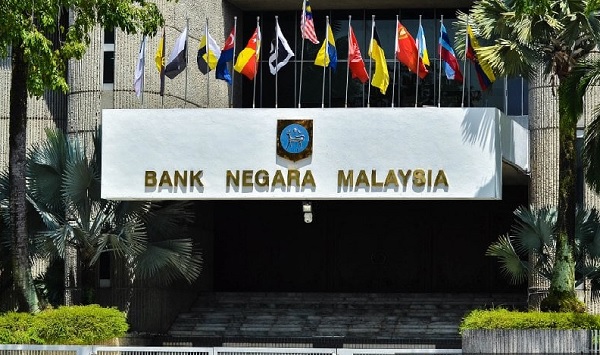Economic and Financial Developments in Malaysia in the Second Quarter of 2023
The economy grew by 2.9% in the second quarter

The Malaysian economy expanded moderately in the second quarter of 2023 (2.9%; 1Q 2023: 5.6%), weighed mainly by slower external demand. Domestic demand remained the key driver of growth, supported by private consumption and investment. Household spending was supported by further growth in employment and wages. Meanwhile, investment activity was underpinned by capacity expansion, progress of multi-year projects and higher fixed asset spending by the government. Continued recovery in inbound tourism partially offset the slower goods export growth. Growth during the quarter was also affected by the high base effect in the second quarter of 2022 when the economy experienced strong growth from reopening effects and policy measures. On the supply side, the services and construction sectors continued to support growth. Meanwhile, production in the agriculture and mining sectors were affected by hot weather and plant maintenance. On a quarter-on-quarter seasonally-adjusted basis, the economy grew by 1.5% (1Q 2023: 0.9%).
Headline inflation during the quarter continued to moderate to 2.8% (1Q 2023: 3.6%). The moderation was recorded in both non-core inflation and core inflation. For non-core inflation, fresh food and fuel contributed to the decline. Core inflation, while declining, remained elevated relative to its long-term average (2011-2019 average: 2.0%). The moderation in core inflation (2Q 2023: 3.4%; 1Q 2023: 3.9%) was largely contributed by selected services. These
Financing conditions
The growth in credit to the private non-financial sector moderated to 3.8% (1Q 2023: 4.1%) on account of slower growth in outstanding business loans. Outstanding corporate bonds growth, however, improved to 4.9% (1Q 2023: 4.4%). Outstanding business loans grew by 0.7%, due mainly to lower growth in working capital loans to non-SMEs. Notwithstanding this, investment-related loan growth remained sustained, with steady growth recorded for the purchase of fixed assets and non-residential properties. For households, outstanding loans expanded by 5.1%, mainly driven by loans for the purchase of residential properties and cars.
For the remainder of 2023, growth to remain moderate amid external headwinds but continues to be supported by resilient domestic demand
With the challenging global environment, the Malaysian economy is projected to expand close to the lower end of the 4.0% to 5.0% range in 2023. Growth will continue to be supported by domestic demand amid improving employment and income as well as implementation of multi-year projects. Tourist arrivals are expected to continue rising, which would support tourism-related activities. Governor Datuk Abdul Rasheed Ghaffour explained, “Risks to Malaysia’s growth outlook is subject to downside risk stemming primarily from weaker-than-expected global growth. There are, however, upside risk factors such as stronger-than-expected tourism activity and faster implementation of projects.”
Headline and core inflation are projected to moderate further in 2H 2023
For the second half of 2023, both headline and core inflation are projected to trend lower within expectations, partly due to the higher base in the corresponding period last year. Nonetheless, risks to the inflation outlook are subject to the changes to domestic policy on subsidies and price controls, as well as global commodity prices and financial market developments.
Bank Negara Malaysia article - https://www.bnm.gov.my/-/qb23q2_en_pr